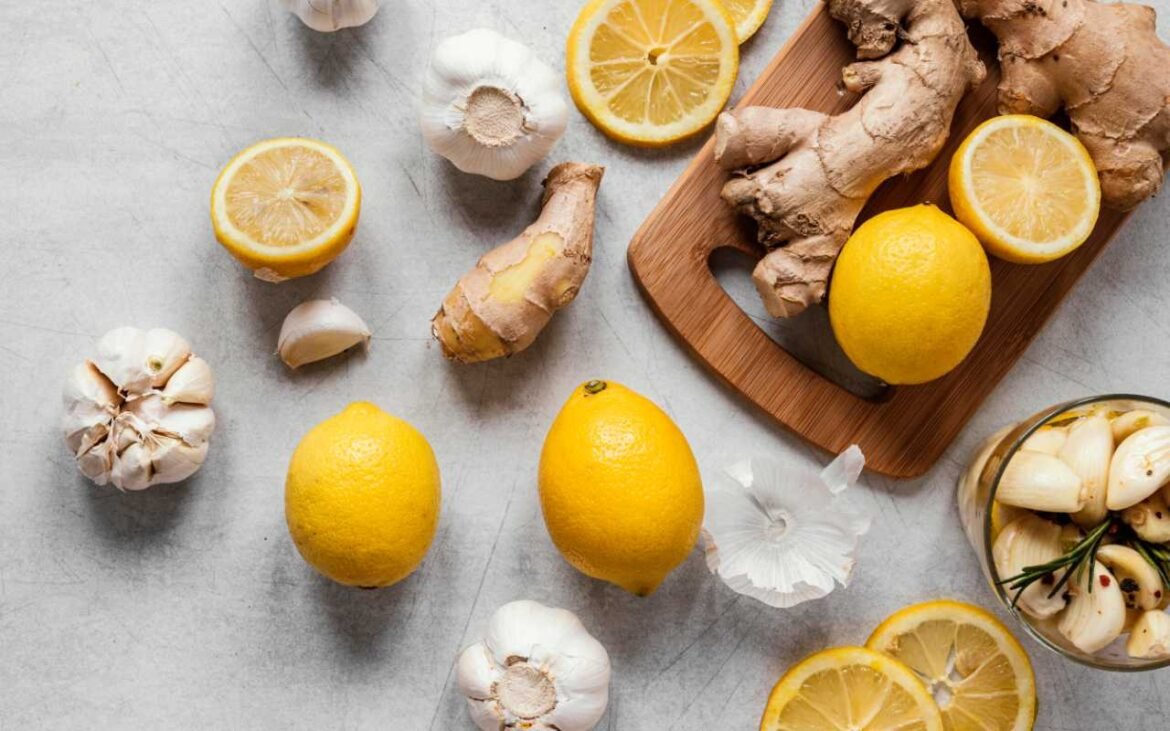Table of Contents
Ever wondered why some people seem to sail through flu season while others catch everything that’s going around? The secret might be sitting right in your kitchen! Superfoods for immunity aren’t just a trendy buzzword – they’re your body’s best allies in building a fortress-like defense system that can tackle whatever life throws your way.
Think about it: your immune system is working 24/7, like a dedicated security team protecting your body from unwanted invaders. But just like any hardworking team, it needs the right fuel to perform at its peak. That’s where these nutritional powerhouses come into play, packed with the vitamins, minerals, and antioxidants your immune cells crave.
Understanding Your Body’s Defense System
Your immunity is essentially your body’s personal bodyguard – a sophisticated network of cells, tissues, and organs that work together to identify and eliminate threats like viruses, bacteria, and other harmful pathogens. It’s pretty amazing when you think about it!
But here’s the thing: your immune system doesn’t operate in a vacuum. What you eat directly influences how well it functions. Every meal is an opportunity to either strengthen or weaken your body’s defenses. The nutrients from your food provide the essential building blocks that immune cells need to multiply, communicate, and launch effective attacks against invaders.
Research consistently shows that people with nutrient-rich diets tend to have stronger immune responses and recover faster from illnesses. It’s not magic – it’s science working in your favor!
Why Antioxidants Are Your Immune System’s Best Friends
Let’s talk about antioxidants – these incredible molecules that act like your body’s cleanup crew. They’re constantly hunting down free radicals, those unstable molecules that can cause cellular damage and trigger inflammation throughout your body.
When your body is dealing with chronic inflammation, your immune system gets overwhelmed trying to manage the constant “fire drill.” This leaves you more vulnerable to infections and slows down your recovery time. Antioxidants help put out these inflammatory fires, allowing your immune system to focus on what it does best – protecting you from real threats.
The benefits of loading up on antioxidant-rich foods include:
- Reduced inflammation throughout your body
- Lower risk of chronic diseases like heart disease and diabetes
- Enhanced cellular repair and regeneration
- Stronger immune cell function and communication
Foods that are especially rich in these protective compounds include colorful berries, dark leafy greens, nuts, seeds, and those vibrant vegetables that make your plate look like a rainbow.
Superfoods That Transform Your Immune Defense
Berries: Nature’s Antioxidant Powerhouses
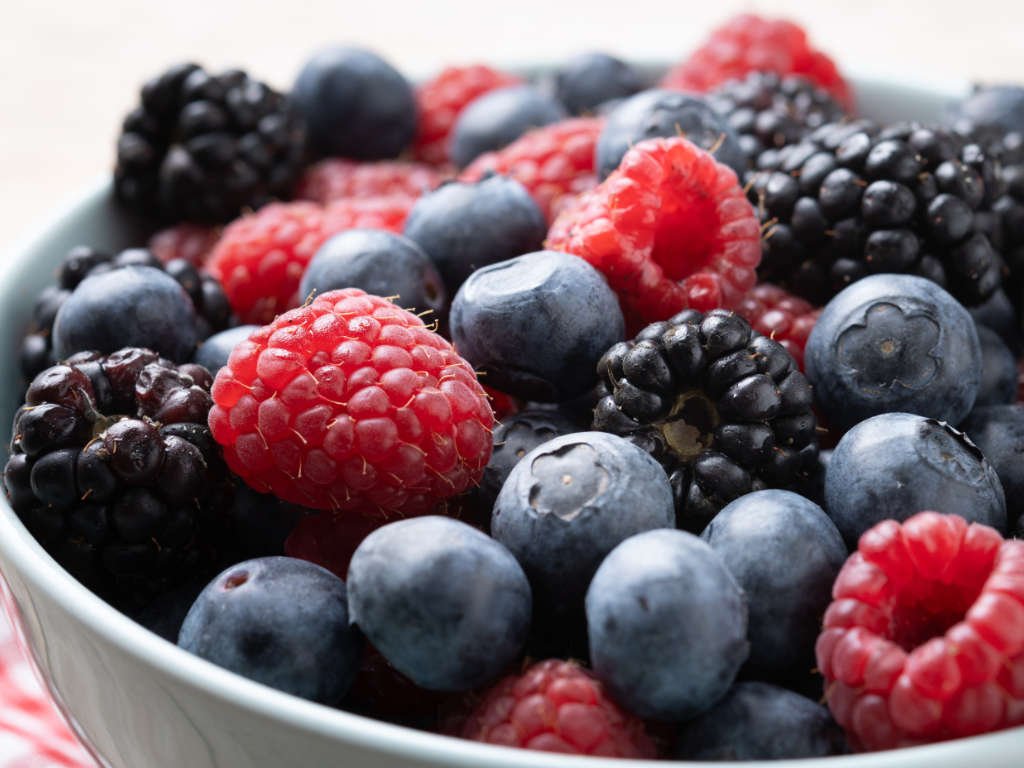
Blueberries, strawberries, and açai berries are like tiny immune-boosting bombs packed with vitamin C, flavonoids, and anthocyanins. These compounds work together to reduce inflammation and support the production and function of immune cells.
Studies have shown that people who regularly consume berries have higher levels of natural killer cells – specialized immune cells that hunt down and destroy infected cells. Plus, they’re delicious! Try adding a handful to your morning smoothie or yogurt for an instant immunity upgrade.
Spinach: The Iron-Rich Immunity Builder
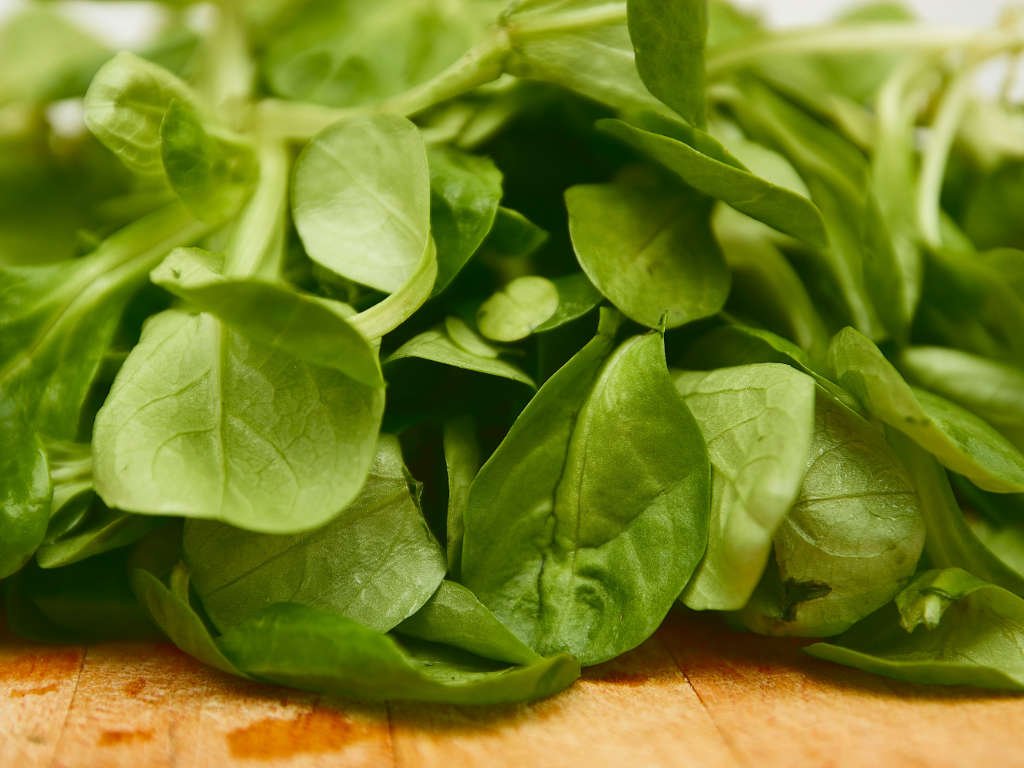
Don’t underestimate this leafy green! Spinach is loaded with vitamins A, C, and K, plus essential minerals like iron and folate that are crucial for immune cell development. The vitamin A in spinach helps maintain the integrity of your skin and mucous membranes – your body’s first line of defense against pathogens.
The best part? Spinach is incredibly versatile. Blend it into smoothies (trust me, you won’t taste it!), toss it in salads, or sauté it with garlic for a double immunity boost.
Garlic: Your Antimicrobial Ally
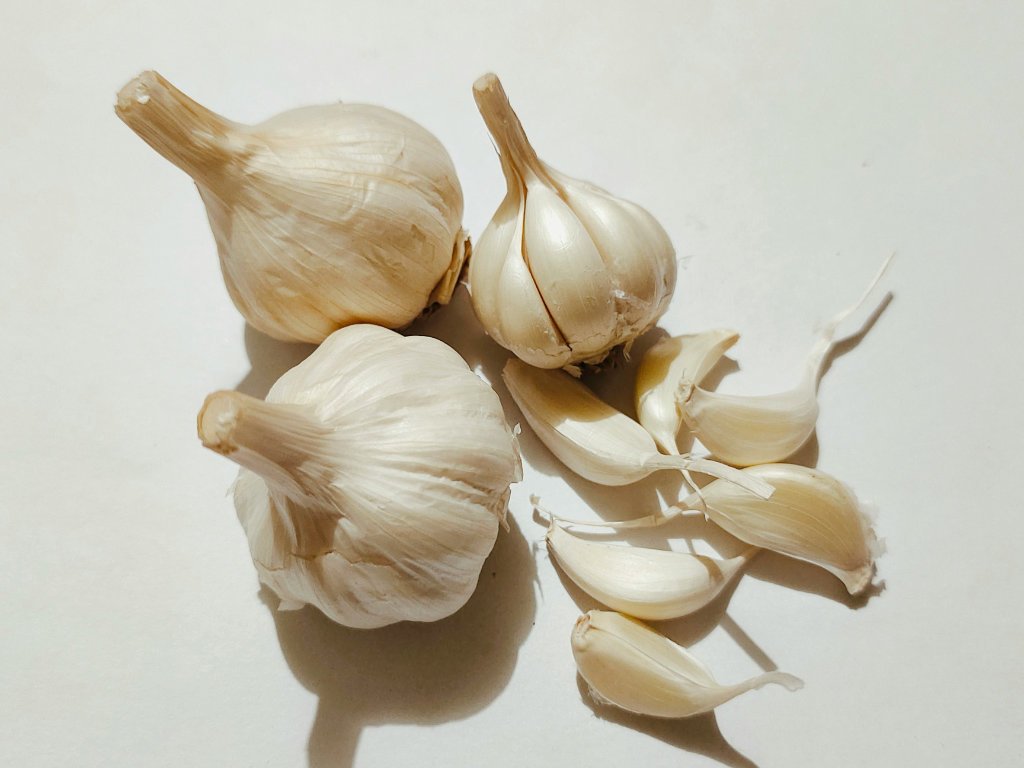
Garlic has been used medicinally for thousands of years, and modern science backs up what our ancestors knew. The compound allicin, which gives garlic its distinctive smell, has powerful antimicrobial and immune-enhancing properties.
Regular garlic consumption has been linked to fewer colds and faster recovery times. The key is to crush or chop fresh garlic and let it sit for a few minutes before cooking to maximize the allicin content. Add it to soups, stir-fries, or roasted vegetables for maximum flavor and immunity benefits.
Ginger: The Anti-Inflammatory Superstar
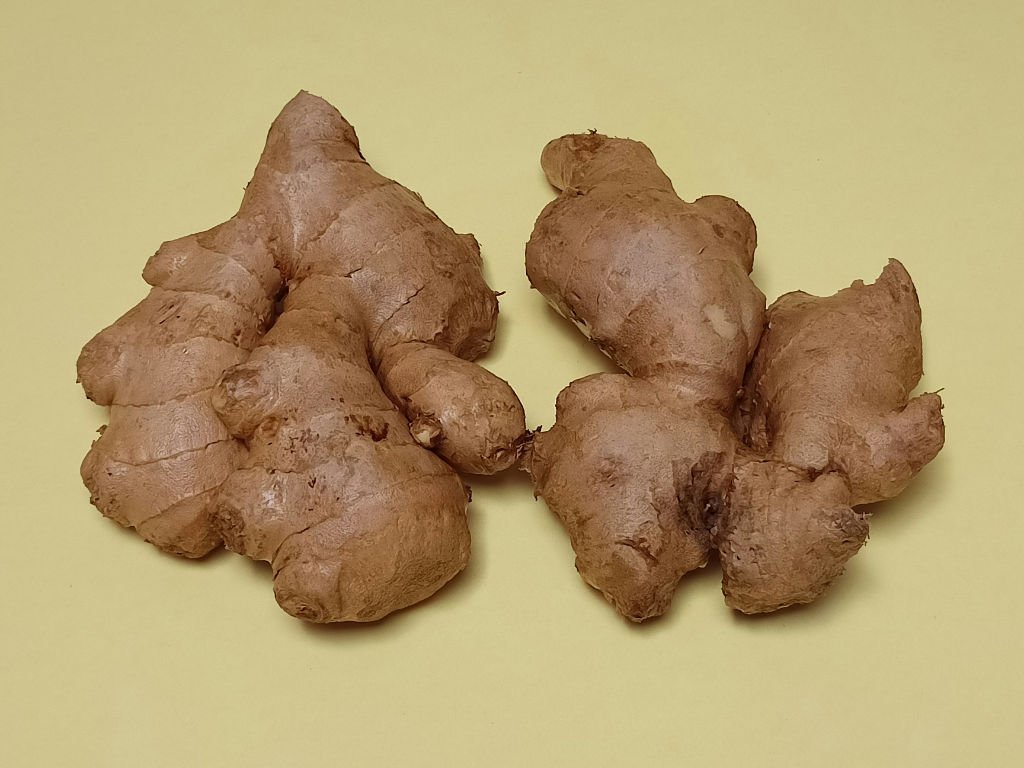
This spicy root contains gingerol, a bioactive compound with potent anti-inflammatory and antioxidant effects. Ginger helps reduce inflammation that can suppress immune function and may even help your body fight off infections more effectively.
Fresh ginger tea is fantastic when you’re feeling under the weather, but don’t wait until you’re sick! Incorporate ginger into your regular cooking routine by adding it to stir-fries, smoothies, or homemade salad dressings.
Citrus Fruits: Vitamin C Champions

Oranges, grapefruits, lemons, and limes are vitamin C superstars, and this vitamin is absolutely essential for immune function. Vitamin C stimulates the production of white blood cells and helps them function more effectively while protecting them from damage.
Your body can’t store vitamin C, so you need to replenish it regularly. Aim for at least one citrus fruit daily, or squeeze fresh lemon into your water for a refreshing immunity boost.
Yogurt: Probiotic Powerhouse for Gut Health
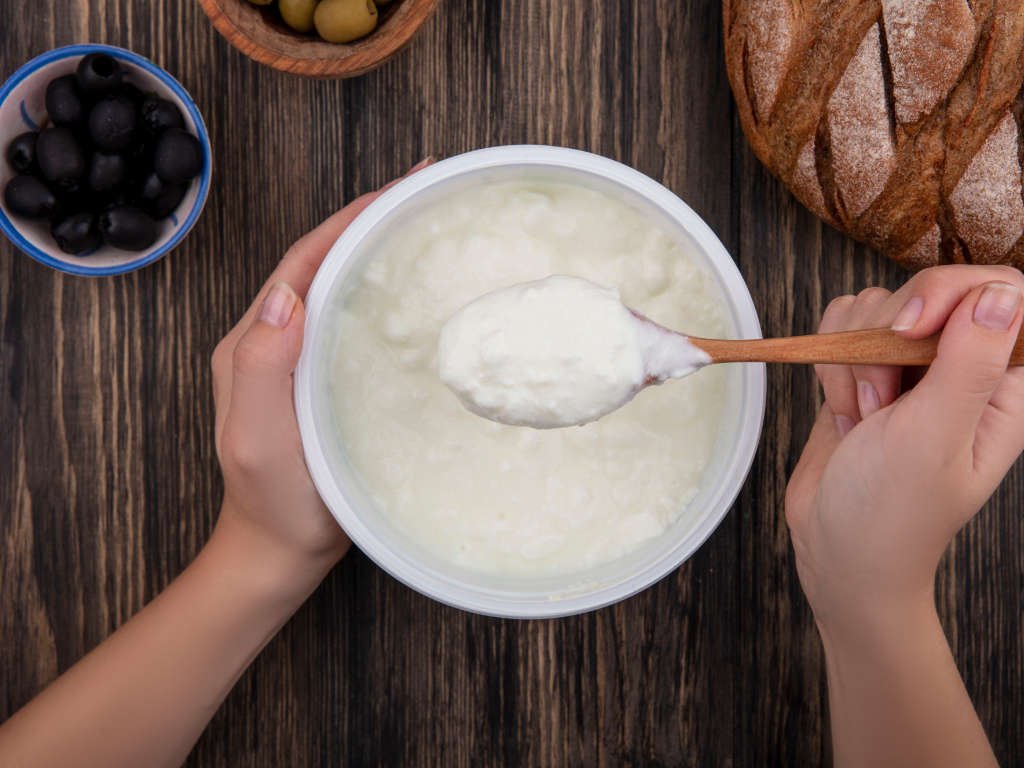
Here’s something that might surprise you: about 70% of your immune system is located in your gut! Plain yogurt with live and active cultures provides beneficial probiotics that support a healthy gut microbiome, which directly influences immune function.
Look for yogurt that contains multiple strains of beneficial bacteria, and avoid the sugar-loaded varieties that can actually suppress immune function. Greek yogurt is an excellent choice because it’s higher in protein and probiotics.
Almonds: Vitamin E for Cellular Protection
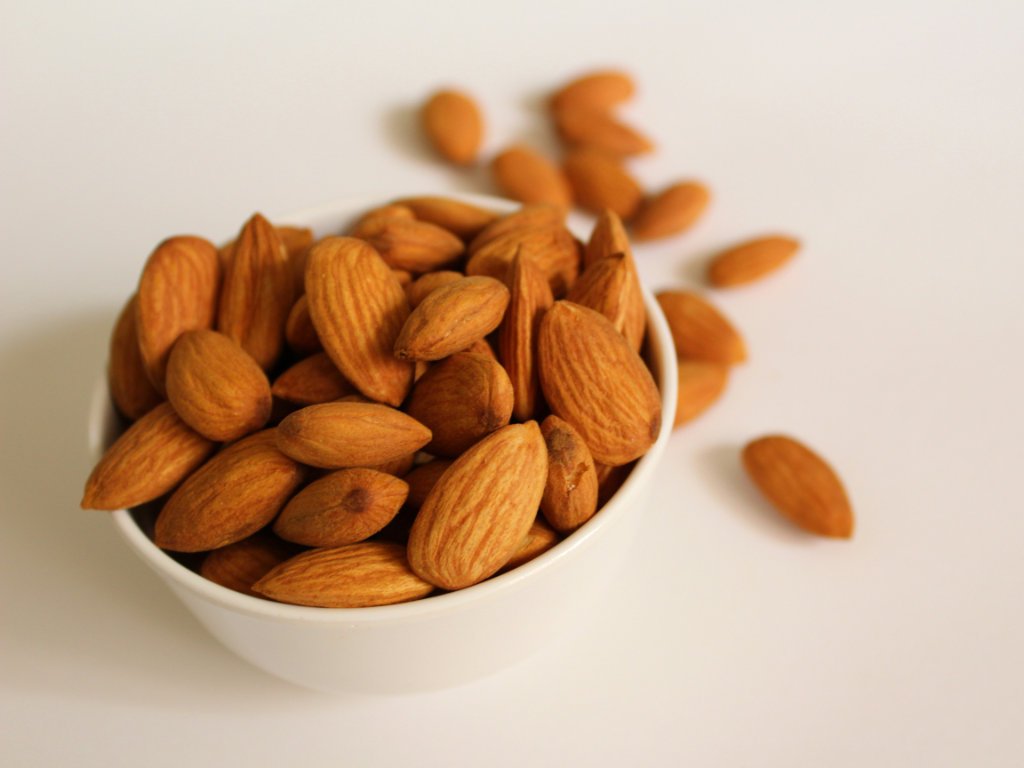
Almonds are packed with vitamin E, a fat-soluble antioxidant that’s crucial for maintaining healthy immune function. Vitamin E helps protect cell membranes from oxidative damage and supports the function of T-cells, which are key players in your adaptive immune response.
A small handful of almonds (about 1 ounce) provides nearly 48% of your daily vitamin E needs. They make a perfect snack or can be added to salads, yogurt, or homemade trail mix.
How Do These Superfoods Actually Work in Your Body?
When you eat these immune-boosting superfoods, you’re not just getting isolated nutrients – you’re getting complex combinations of vitamins, minerals, antioxidants, and other bioactive compounds that work synergistically to support your health.
For example, the vitamin C in citrus fruits works better when paired with the flavonoids also found in the fruit. The iron in spinach is better absorbed when eaten with vitamin C-rich foods. This is why getting nutrients from whole foods is so much more effective than relying on supplements alone.
These foods help your immune system in several ways:
- They provide raw materials for immune cell production
- They reduce inflammation that can suppress immune function
- They support the gut microbiome, which plays a crucial role in immunity
- They protect immune cells from damage caused by free radicals
What Does the Research Say About Superfoods and Immunity?
Multiple studies have confirmed the immune-boosting benefits of these superfoods.
Another study showed that regular consumption of yogurt with probiotics reduced the duration and severity of upper respiratory infections. The evidence is clear: what you eat directly impacts how well your immune system functions.
According to health experts, incorporating a variety of superfoods into your daily diet is one of the most effective ways to support long-term immune health and reduce your risk of chronic diseases.
Creating Your Personal Immunity-Boosting Meal Plan
Building a wellness lifestyle around these superfoods doesn’t have to be complicated or expensive. Here’s how to make it work in real life:
For Breakfast:
- Add berries and almonds to oatmeal or yogurt
- Blend spinach into a fruit smoothie (you won’t taste it, promise!)
- Start your day with warm lemon water
For Lunch:
- Build salads with dark leafy greens and citrus segments
- Add garlic and ginger to soups and grain bowls
- Include a small portion of plain yogurt as a side
For Dinner:
- Incorporate garlic and ginger into stir-fries and roasted vegetables
- Create immune-boosting soups with multiple superfoods
- End meals with a small handful of almonds
Smart Meal Prep Tips:
- Pre-wash and chop spinach for easy smoothie additions
- Keep frozen berries on hand for year-round availability
- Prepare garlic-ginger paste in batches for quick cooking
- Make large batches of immunity-boosting soups to freeze
The key is consistency, not perfection. Even small, regular additions of these superfoods can make a significant difference in your immune function over time.
Can You Really Boost Immunity Through Food Alone?
While superfoods for immunity are incredibly powerful, they work best as part of a holistic approach to health. Your immune system is influenced by multiple factors including sleep quality, stress levels, physical activity, and overall diet quality.
That said, nutrition plays a foundational role. Think of superfoods as the premium fuel that helps your immune system run at optimal performance. Combined with adequate sleep, regular exercise, and stress management, these foods can significantly strengthen your body’s natural defenses.
For more comprehensive approaches to building immunity, consider exploring proven immunity boost strategies that complement your superfood intake.
Are There Any Risks or Considerations?
For most people, incorporating these superfoods into their diet is safe and beneficial. However, there are a few things to keep in mind:
- If you’re taking blood-thinning medications, talk to your healthcare provider about increasing garlic intake
- People with citrus allergies should obviously avoid citrus fruits
- Those with dairy sensitivities can opt for plant-based yogurt alternatives with probiotics
- Always wash berries thoroughly to remove potential pesticide residues
The beauty of focusing on whole foods is that they’re generally much safer than supplements, which can sometimes interact with medications or cause side effects when taken in large doses.
How Long Before You See Results?
This is probably the most common question people ask about immune-boosting foods. While you might feel more energized within days of improving your diet, meaningful immune system changes typically take 2-4 weeks of consistent healthy eating.
Your gut microbiome, which plays a crucial role in immunity, can start shifting within just a few days of dietary changes, but it takes time for these changes to translate into stronger immune responses. The good news? Once you establish these healthy eating patterns, the benefits compound over time.
Research from medical centers suggests that people who maintain superfood-rich diets for months or years show significantly stronger immune responses compared to those eating standard Western diets.
Building Sustainable Habits That Last
Let’s be honest – most people start strong with healthy eating plans but struggle to maintain them long-term. The secret to success with superfoods for immunity is making them convenient and enjoyable, not treating them like medicine.
Start Small:
- Add just one new superfood per week
- Focus on foods you actually enjoy eating
- Find ways to incorporate them into meals you already love
Make It Convenient:
- Keep frozen berries and pre-washed greens on hand
- Prep immunity-boosting smoothie packs on weekends
- Stock up on shelf-stable items like nuts and garlic
Get Creative:
- Try new recipes that feature multiple superfoods
- Experiment with different preparations and flavor combinations
- Share meals with family and friends to make it social
Remember, the goal isn’t perfection – it’s progress. Even incorporating a few of these superfoods regularly can make a meaningful difference in your immune health.
Beyond Individual Foods: The Power of Variety
While each superfood brings unique benefits to your immune system, the real magic happens when you eat a variety of nutrient-dense foods. Different foods provide different antioxidants, vitamins, and minerals, and your immune system needs this diversity to function optimally.
Think of it like building a well-rounded team – you want players with different strengths working together. The vitamin C from citrus fruits works differently than the vitamin E from almonds, but together they provide more comprehensive protection than either could alone.
This is why nutrition experts consistently recommend eating a “rainbow” of foods. Each color represents different beneficial compounds:
- Red foods (berries) provide anthocyanins
- Orange foods (citrus) offer vitamin C and beta-carotene
- Green foods (spinach) supply folate and chlorophyll
- White foods (garlic) contain sulfur compounds
The Connection Between Gut Health and Immunity
One of the most exciting areas of recent research is the connection between gut health and immune function. Your digestive system houses about 70% of your immune cells, making gut health crucial for overall immunity.
Many of the superfoods we’ve discussed support gut health in addition to providing direct immune benefits:
- Yogurt provides beneficial probiotics
- Garlic and ginger act as prebiotics, feeding good gut bacteria
- Berries contain fiber that supports healthy gut bacteria
- Leafy greens provide nutrients that help maintain the gut barrier
For those interested in diving deeper into gut health, exploring probiotic supplements and prebiotic-rich foods can provide additional immune system benefits.
Seasonal Considerations for Immune Support
Your immune system faces different challenges throughout the year, and you can adjust your superfood intake accordingly. During cold and flu season (typically fall and winter), you might want to emphasize:
- Citrus fruits for extra vitamin C
- Garlic and ginger for their antimicrobial properties
- Warm, nourishing soups that combine multiple superfoods
In spring and summer, when fresh produce is abundant, focus on:
- Fresh berries at their peak nutritional content
- Garden-fresh leafy greens for maximum nutrient density
- Lighter preparations that maintain the integrity of heat-sensitive vitamins
According to nutrition specialists, adjusting your superfood intake seasonally can help optimize immune function year-round.
Real-Life Success Stories and Practical Applications
Many people report noticeable improvements in their energy levels and resistance to illness after consistently including these superfoods in their diet. While everyone’s experience is different, common benefits people notice include:
- Fewer colds and shorter recovery times
- More stable energy levels throughout the day
- Better digestion and gut comfort
- Improved skin appearance and wound healing
- Enhanced mental clarity and focus
The key to success lies in finding practical ways to incorporate these foods into your existing lifestyle rather than completely overhauling your diet overnight.
For additional support in your wellness journey, consider exploring comprehensive approaches to daily nutrition and mental health strategies that complement your superfood intake.
Making It Work for Your Lifestyle
Whether you’re a busy parent, working professional, or student, there are ways to make superfoods for immunity work within your schedule and preferences:
For Busy Schedules:
- Pre-portioned smoothie ingredients in freezer bags
- Garlic and ginger pastes for quick cooking
- Trail mix with almonds and dried berries for on-the-go snacking
For Families:
- Involve kids in choosing and preparing colorful fruits and vegetables
- Make immune-boosting smoothies a fun family activity
- Hide nutrition in familiar foods (spinach in pasta sauce, berries in pancakes)
For Budget-Conscious Eaters:
- Focus on versatile, shelf-stable options like garlic and nuts
- Use frozen fruits and vegetables when fresh is expensive
- Buy in bulk and prep in batches
Frequently Asked Questions About Superfoods for Immunity
Q: Can I just take supplements instead of eating whole superfoods?
While supplements can be helpful in certain situations, whole foods are generally superior for immune support. Foods contain complex combinations of nutrients that work synergistically, plus fiber and other beneficial compounds that supplements often lack. The bioavailability of nutrients from whole foods is also typically better than from isolated supplements.
Q: How much of these superfoods do I need to eat daily?
There’s no magic number, but aim for variety rather than large quantities of any single food. A handful of berries, a cup of leafy greens, a clove or two of garlic, and a small portion of yogurt daily can provide significant immune benefits. Focus on consistent intake over perfection.
Q: Are frozen versions of these superfoods as good as fresh?
Absolutely! Frozen berries and vegetables are often frozen at peak ripeness, preserving their nutrient content. They’re convenient, cost-effective, and available year-round. Just avoid varieties with added sugars or sauces.
Q: Can children eat these immunity-boosting superfoods?
Most of these foods are excellent for children, though you might need to get creative with preparation. Smoothies are great for hiding spinach, and many kids love berries and oranges. Start with small amounts and gradually increase as they develop preferences.
Q: What if I don’t like some of these foods?
Don’t force yourself to eat foods you dislike – there are plenty of options! If you hate spinach, try other dark leafy greens like kale or arugula. Not a fan of yogurt? Consider kefir or other fermented foods. The key is finding superfoods for immunity that you actually enjoy eating.
The Bottom Line on Superfoods for Immunity
Building a stronger immune system through nutrition isn’t about following a perfect diet or eating exotic, expensive foods. It’s about consistently choosing nutrient-dense options that support your body’s natural defense mechanisms.
The superfoods for immunity we’ve discussed – berries, spinach, garlic, ginger, citrus fruits, yogurt, and almonds – are accessible, versatile, and scientifically proven to support immune function. When combined with other healthy lifestyle choices like adequate sleep, regular exercise, and stress management, they can significantly strengthen your body’s ability to fight off illness and maintain optimal health.
Start with one or two superfoods that appeal to you, and gradually expand your repertoire as you discover new ways to enjoy these nutritional powerhouses. Your immune system will thank you, and you’ll likely feel more energetic and resilient as a result.
Remember, the journey to better health is a marathon, not a sprint. Small, consistent changes in your diet can lead to significant improvements in your immune function over time. Focus on progress, not perfection, and celebrate the small wins along the way.
Your Next Steps Toward Stronger Immunity
Ready to transform your immune system with the power of superfoods? Start by choosing one or two foods from our list that you’re excited to try. Maybe it’s adding berries to your morning routine or incorporating more garlic into your cooking – whatever feels manageable and enjoyable for you.
For those looking to dive deeper into optimal nutrition strategies, explore comprehensive guides on antioxidant-rich foods and balanced nutrition approaches that can complement your superfood journey.
What’s your favorite way to incorporate these immune-boosting superfoods into your daily routine? Share your creative recipes and tips in the comments below – your ideas might just inspire others on their wellness journey! And don’t forget to check out our other resources on natural health approaches and stress management techniques to create a comprehensive wellness lifestyle that supports your immune system from all angles.


